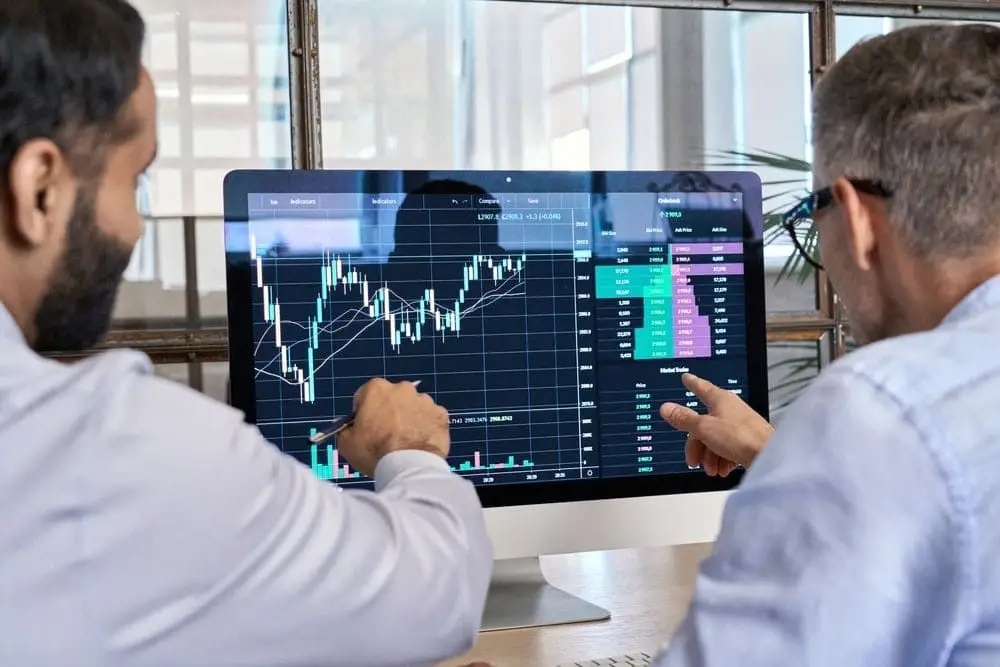In a world full of big money and even bigger expectations, pre-investment becomes a real ‘black box’ that attracts investors like moths to a lamp. But what is hidden? Is it really just glitter? In this article, we reveal the secrets, put everything in its place and answer the question of what a pre-IPO is in the investment world and why it is relevant now.
What is a pre-IPO in investing?: Complex aspects in simple terms
The future giants of the stock market have not yet gone public, but they are already looking for financing for their development. Why do companies opt for the pre-investment phase? This is a unique opportunity to get money faster, without getting lost in complicated bureaucracy.

The comparison here is clear: if IPO is an official debut on the big stage, then Pre is a dress rehearsal, but with real money. And this money comes from those who are willing to take risks in exchange for possible benefits. To understand what a pre-IPO investment entails, consider the recent success of SpaceX. The company had already attracted millions of dollars from investors who believed in the future of space travel, even before its IPO.
How does pre-IPO investing work and why is it so interesting?
 It works like joining an elite club: not everyone can join, but those who are admitted receive benefits that others do not. What should you look for when investing before an IPO? A chance to be on the scene before the main action begins. Pre-market investing involves buying shares in a company before it goes public.
It works like joining an elite club: not everyone can join, but those who are admitted receive benefits that others do not. What should you look for when investing before an IPO? A chance to be on the scene before the main action begins. Pre-market investing involves buying shares in a company before it goes public.
For investors, this is not just a chance to make money: it is a chance to be part of history. Investing before a round is often compared to buying tickets to a show before the line-up is popular and well-known. The main participants in this process are hedge funds, institutional investors and individual investors with significant capital.
Who are investors and entrepreneurs in the pre-IPO phase?
Angels are not people who fly with wings on their backs, but courageous private investors who are willing to invest money in a company at an early stage. In 2004, Google received $100,000 from one of these investors and was able to launch its first large-scale services. Investments from investors often go hand in hand with venture capital funds, which finance projects with larger amounts of money and broader possibilities.
For example, the startup Airbnb once received support from Sequoia Capital and was able to significantly expand its activities. Venture capital helps companies survive the phase in which they are not yet mature enough for an IPO, but are ready for significant growth. Business angels and venture capitalists act as mentors and sponsors: their role is crucial for the development of the company.
Advantages and risks of pre-IPO investments
Advantages include the high potential for returns. If a company grows after an IPO, the value of its shares can increase many times over. However, it is important to always keep in mind that high profitability also entails high risks. Other advantages include the ability to buy shares at a reduced price, participation in the early stages of a company’s development, and the possibility of large profits in the event of a successful IPO. This opens up access, especially for Russia, to fast-growing companies such as Ozon and Yandex, which have not yet gained a foothold in the international market. This allows Russian investors to be the first to benefit from the growth of domestic players on the world stage.
However, the dangers are no less significant. There is no guarantee that the company will go public: there may be bureaucratic or market-related obstacles that make this path impassable. Before plunging into this “sea”, it is worth weighing all the pros and cons. Let’s recall the failed stories of startups that did not meet investors’ expectations (and there are quite a few of them).
How to reduce risks before an IPO: strategies and approaches
Threats can be minimized using a number of proven strategies. Diversification is, first of all, a classic approach. Secondly, it is important to carefully study the company: understand its financial situation, development prospects and the market. How to reduce risks when investing before an IPO? For example, the participation of funds also contributes to risk reduction, because their specialists know how to assess the potential of projects and select the most promising ones.
Buying shares before an IPO: the investor’s path
To become a happy shareholder before your company officially goes public, you need to follow a specific plan. First, you need to choose a suitable platform that provides access to previous transactions. Often they offer investors the opportunity to buy shares in companies planning an IPO. What should you pay attention to when investing before an IPO? It is the key to a closed door that opens the way to players who are not yet known, but are potentially profitable.
The next step is to evaluate the company itself. It is necessary to carefully study the reports, the model and possible risks. Understand whether it is really worth investing in a company. How to buy shares before the IPO? Platforms such as Freedom24 or VTB offer the opportunity to buy packages before the IPO, but this requires registration and confirmation of the status of a qualified investor.
Pre-IPO in Russia: local features and opportunities
Despite the risks, Russian investors also try to invest in promising companies before they go public. Pre-IPO – What investments are available for the domestic market? This is an opportunity to bypass important restrictions and gain access to companies that are not yet ready to go public, but still need additional financial resources for growth.
Pre-IPO funds: a bridge between startups and IPOs
The main link for those looking for the most profitable investment opportunities. These funds are a bridge between startups looking to raise capital and large investors. Examples from Russia are Runa Capital and Almaz Capital. They help startups go through critical growth phases and prepare for their IPO.

Conclusion
 Pre-IPO – what does it mean in the context of investments? This is both an opportunity and a risk. To take full advantage of this opportunity, a detailed understanding of all the nuances and the ability to minimize risks is required. Valuation, diversification and intelligent fund allocation are the three pillars on which successful pre-IPO investments are built.
Pre-IPO – what does it mean in the context of investments? This is both an opportunity and a risk. To take full advantage of this opportunity, a detailed understanding of all the nuances and the ability to minimize risks is required. Valuation, diversification and intelligent fund allocation are the three pillars on which successful pre-IPO investments are built.
 en
en  ru
ru  de
de  ar
ar  es
es  nl
nl  hi
hi  fr
fr  it
it  pt
pt  el
el 











